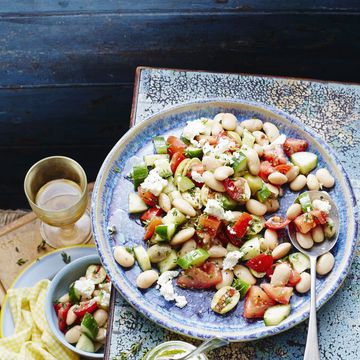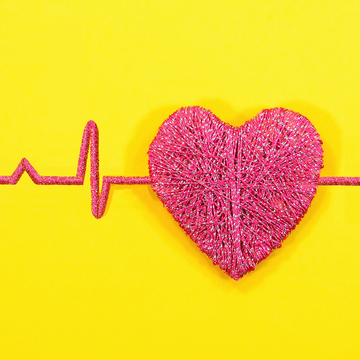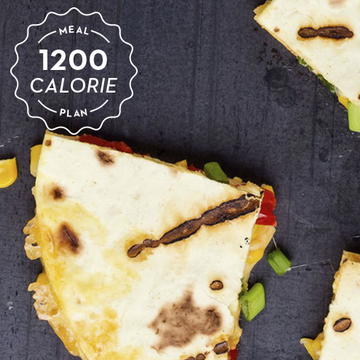The Best Diets of 2024
These eating plans have all been expertly reviewed by our Nutrition Lab Director.

We've been independently researching and testing products for over 120 years. If you buy through our links, we may earn a commission. Learn more about our review process.
New year, new you? Let's lean into “new year, even better you,” instead.
It’s unrealistic to think you can (or need to!) totally revamp your life just because we’ve kicked off a new calendar year. The pressure of that mindset can actually be damaging, especially when your focus is on making improvements to what and how you eat. Big change doesn’t happen overnight, and in fact, your chances of reaching and maintaining your wellness goals is actually better when you make smaller changes over time — these are just as meaningful and will make you feel consistently proud and accomplished as they stack up to eventually equal big change.
“I’d encourage you to make small and manageable changes to your diet and eating habits that feel sustainable for you and your lifestyle. Even starting out with one better-for-you swap a week is a great start — these small shifts can have a tremendous impact on our health and wellbeing,” says Stefani Sassos, M.S., R.D.N, C.D.N, director of the Good Housekeeping Institute Nutrition Lab.
OK, you may be thinking, but where do I begin? Knowing more about some of the healthiest eating styles is a helpful first step. To help you out, we’ve selected the diets we think are best when it comes to “rules” (spoiler alert: restriction isn’t our vibe!), their benefits and one’s ability to stick to them for the long haul.
Our top picks for the best diets of 2024:
- Best Overall Diet: Mediterranean Diet
- Best Plant-Based Diet: Flexitarian Diet
- Best Diet for Weight Loss: Noom
- Best Lifestyle Diet: Blue Zones Diet
“Most of these diets are really just healthy eating patterns or a balanced way of eating. They are not overly restrictive and don’t wholly eliminate food groups,” Sassos adds.
Editor's note: Take time to speak with your primary care provider and/or a registered dietitian before making changes to your diet. Pre-existing health conditions may prevent some from following prescribed dietary plans without affecting their health in unexpected ways. Make sure you identify any specific nutritional needs or potential physical side effects before selecting a long-term diet. Also note that weight loss, health and body image are complex subjects — before deciding to go on a diet, we invite you to gain a broader perspective with our exploration into the hazards of diet culture.
But before we get into all the delicious ways to eat for both health and satisfaction, it’s also useful to know what habits and behavioral tweaks can support your journey to healthier eating and total body wellness.
Keep Sassos’ top tips in mind along the way:
- Remember that even if nutrition is your main goal, it’s not the only piece of the health equation. “Getting adequate sleep, moving your body regularly and taking care of your emotional and mental health are equally, if not more, important,” Sassos says.
- Lean into mindful eating. This circles back to the behavioral piece of adopting a healthful eating style. Learn how certain foods make you feel (energized, sluggish or an instant appetite filler?) so that you can eat in a way that works best for you and your body, not necessarily just the way you’ve been taught growing up or while yo-yo dieting. “One thing that traditional diets lack is an emphasis on eating behaviors. Getting in touch with your body cues and feelings of hunger and fullness doesn’t happen overnight, but is something to work toward so you can learn to trust your body when it comes to eating to feel your best,” says Sassos. Putting down your phone or committing to eating at the table instead of in front of the TV are other smart mindful eating tactics.
- Find a happy medium when it comes to overeating or undereating. “Fasting or skipping meals can lead to a feast-or-famine mentality, even if you find yourself doing it simply because you’re rushed and not to follow some social media trend. “Your body needs fuel throughout the day to function at its best,” says Sassos. If you find yourself overdoing it at night, do a quick scan and make sure you’re eating enough during the day; strive to build balanced meals (plenty of protein, complex carbs and healthy fats) and incorporate healthy snacks that are easy to take on the go (like nuts, whole fruit, Greek yogurt cups and popcorn).
- Slow down. It takes your stomach 20 minutes to signal to your brain that it’s full, so if you’re scarfing down your evening meal in half that time, you’ll likely overeat. Taking time to savor every flavor, texture, and aroma is a form of mindful eating that can also help you take down the pace, Sassos says.
- Use these diets as a guide, not the end all be all. “Ultimately, you don’t have to follow these diets perfectly to reap their benefits. Use them as a foundation for how to build an overall healthy plate — then once you’ve got the hang of it, you can pick and choose which components of the diet work best for you to create something customized and unique for your needs,” says Sassos.
Stefani (she/her) is a registered dietitian, a NASM-certified personal trainer and the director of the Good Housekeeping Institute Nutrition and Fitness Lab, where she oversees all nutrition and fitness-related content, testing and evaluation. She holds a master’s degree in clinical nutrition from New York University, as well as advanced certifications as a Women's Fitness Specialist and a Behavior Change Specialist. Stefani is dedicated to providing readers with evidence-based content to encourage informed food choices and healthy living. She is an avid CrossFitter and a passionate home cook who loves spending time with her big fit Greek family.

Readers Also Read

Inspirational Quotes to Start Your Day

Your Guide to the Mediterranean Diet

Should You Be Trying Moringa?

Recall Expands to Include More Skin Care Products












